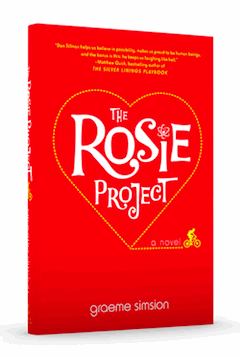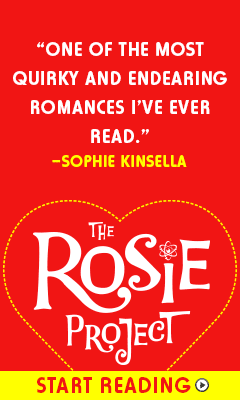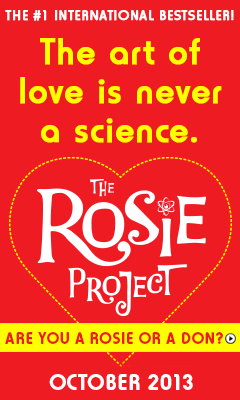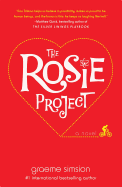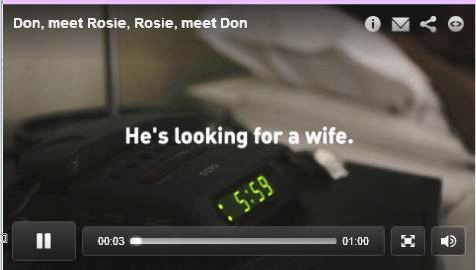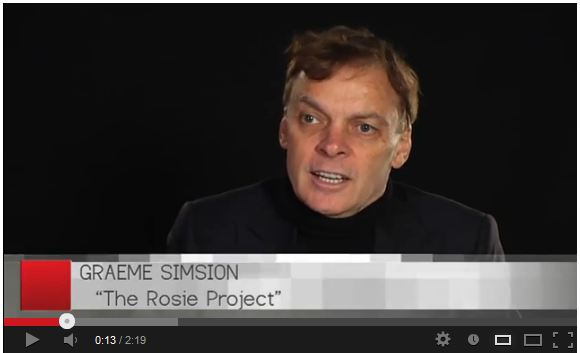The Rosie Project
by Graeme C. Simsion
Few debut novels garner the kind of attention Graeme Simsion's has. As soon as The Rosie Project was shortlisted for Melbourne's 2012 Victorian Premier's Literary Award in the unpublished manuscript category, publishers began to sit up and take notice. That Simsion went on to win the award was icing on the cake compared to having his manuscript picked up not only in his native Australia, but in more than 30 countries as well. The Rosie Project also became a sought-after property for film developers. While readers may sometimes do well to avoid an over-hyped property, take our word for it: this laugh-'til-you-snort gem deserves all the hype.
Don Tillman knows that under ordinary circumstances, he would have no trouble finding a relationship. "I am thirty-nine years old, tall, fit, and intelligent, with a relatively high status and above-average income as an associate professor.... In the animal kingdom, I would succeed in reproducing." Unfortunately for Don's love life, that statement perfectly demonstrates his personality: analytical, logical and largely unable to anticipate or correctly respond to human social behavior. Don lives his life according to a rigid time-maximizing schedule. He's gone so far in his routine as to create "the Standardized Meal System," which involves eating the same seven dishes in the same rotation every week so that he can minimize cooking and shopping time. Unsurprisingly, his pet peeve is tardiness. Due to his immunity to the subtleties of human interaction, Don boasts only two friends: Gene, a fellow professor with a mission to bed a woman from every country on the globe, and Gene's wife, Claudia, who is beginning to balk at their open marriage. While both have advised Don on matters of the heart and even set him up on dates, Don's lack of a social filter kills the mood every time. In fact, Don is so socially unaware that he fails to recognize when women are trying to flirt with him and unwittingly rebuffs them. During one of these advances, Don has an epiphany: Why not develop a testing instrument that will find his ideal mate scientifically, a questionnaire that will filter out unsuitable candidates? So begins the Wife Project--and so ends the unlucky ladies' attempts to get oblivious Don pay attention.
However, the course of true love never did run smooth, particularly when one attempts to obtain it via survey questions. In the midst of Don's struggle to find Miss Right, he meets Miss Completely Wrong. Rosie isn't the health-conscious, rationally detached, non-smoking, non-drinking, conservatively dressed professional woman Don intended to find, but when she tells him that she doesn't know the identity of her biological father, Don's curiosity as a geneticist gets the better of him. He offers to help her find the truth, all in the name of science, and not because he finds Rosie strangely alluring despite her unsuitability--or so he tells himself. In no time at all, Rosie begins to turn Don's carefully calibrated world on its head with her spontaneity and joie de vivre. Can a free spirit like Rosie ever see through Don's pocket protector to the heart underneath? More importantly, can Don turn loose of his narrow world view long enough to confront his feelings for Rosie?
In a telling moment, Don addresses a group of children with Asperger's syndrome. While the group's facilitator insists that the "Aspies" need to change if they're ever going to enjoy normal relationships as adults, Don posits that they are more likely to be focused, organized and creative thinkers who won't struggle to distinguish between rational thought and their emotions. While Simsion uses the experience to set up the idea that people with Asperger's syndrome actually have some advantages over the neurotypical, he also allows the incident to pass with no comment from Don or any other character on how closely the Asperger's profile mirrors Don's personality. Far from dancing around the issue of a possible disability, Simsion's omission serves to assert that while Don's eccentricities are not without effect, the lack of diagnosis or intervention has not kept Don from building a successful life. He is different, but not disabled, and his differences have carried him forward professionally even if they have held him back socially. While Don's social missteps and innocent tactlessness drive the story's humor, one never gets the sense that Simsion is making fun of Don; rather, he pokes fun at the rest of humanity--irrational decisions, unnecessarily complicated nuances of courtship, apparent aversion to punctuality and all.
While Simsion's charming hero is unconventional, expect a traditional romantic comedy with sly nods to film classics of the genre. Sometimes touching, sometimes thought-provoking and always hilarious, The Rosie Project is a feel-good novel that, just like your favorite romantic movie, you'll want to enjoy again and again. --Jaclyn Fulwood



